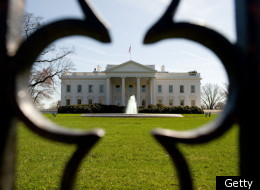A new Washington Post/ABC News poll found that super PACs, the political organizations that allow donors to contribute unlimited amounts of money in support of candidates, are extremely unpopular among American voters.
The poll, conducted among registered voters from March 7-10, found that 69 percent of voters want super PACs to be made illegal, while 25 percent want them to remain legal. Independent voters felt more strongly than Democrats or Republicans -- 78 percent said they favored banning super PACs.
Super PACs have emerged as a crucial part of the 2012 campaign, the first presidential cycle for which they've been in existence. The groups have raised millions of dollars for all the major GOP primary candidates, with Mitt Romney's Restore Our Future PAC out front with $34 million spent.
In another measure of the new playing field, Newt Gingrich has been able to stay afloat in the Republican primary largely because of the financial backing of one man, casino magnate Sheldon Adelson -- an arrangement that would have been impossible four years ago. Super PACs' tentacles are spreading slowly but surely at the state level, too.
Super PACs developed as a byproduct of the Supreme Court's 2010 Citizens United decision, which swept aside decades of election-law precedent in a controversial 5-4 decision.
Since then, the court's decision has become a flashpoint for the long-running debate over campaign spending, with politicians on both sides of the aisle voicing their displeasure with the new rules. President Barack Obama singled out the Supreme Court over the decision in his 2010 State of the Union address, while John McCain called Citizens United "one of the worst decisions I have ever seen." Late-night host Stephen Colbert, meanwhile, has created his own super PAC to illustrate what he sees as the law's absurdity.
Original Article
Source: Huff
Author: Benjamin Hart
The poll, conducted among registered voters from March 7-10, found that 69 percent of voters want super PACs to be made illegal, while 25 percent want them to remain legal. Independent voters felt more strongly than Democrats or Republicans -- 78 percent said they favored banning super PACs.
Super PACs have emerged as a crucial part of the 2012 campaign, the first presidential cycle for which they've been in existence. The groups have raised millions of dollars for all the major GOP primary candidates, with Mitt Romney's Restore Our Future PAC out front with $34 million spent.
In another measure of the new playing field, Newt Gingrich has been able to stay afloat in the Republican primary largely because of the financial backing of one man, casino magnate Sheldon Adelson -- an arrangement that would have been impossible four years ago. Super PACs' tentacles are spreading slowly but surely at the state level, too.
Super PACs developed as a byproduct of the Supreme Court's 2010 Citizens United decision, which swept aside decades of election-law precedent in a controversial 5-4 decision.
Since then, the court's decision has become a flashpoint for the long-running debate over campaign spending, with politicians on both sides of the aisle voicing their displeasure with the new rules. President Barack Obama singled out the Supreme Court over the decision in his 2010 State of the Union address, while John McCain called Citizens United "one of the worst decisions I have ever seen." Late-night host Stephen Colbert, meanwhile, has created his own super PAC to illustrate what he sees as the law's absurdity.
Original Article
Source: Huff
Author: Benjamin Hart

No comments:
Post a Comment